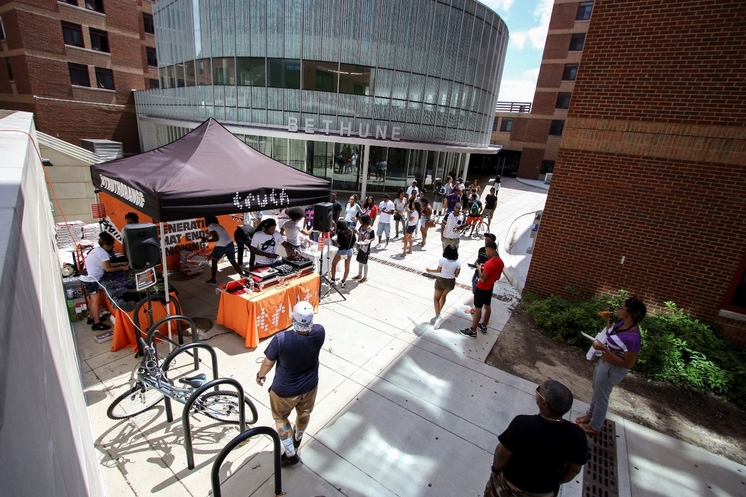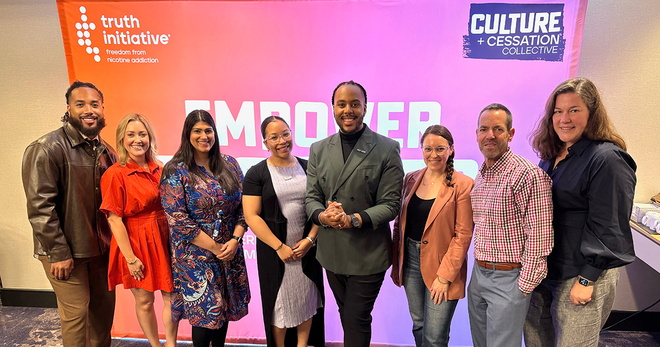Youth fellows gain support for a tobacco-free Howard University
Two Truth Initiative youth activism fellows gathered more than 300 signatures from Howard University students at an orientation event to raise awareness and build support for a campus tobacco-free policy.
Fellows Quamiir Trice and Julia Osage, both students at Howard, led the event to educate first-year students and secure pledges to support the university’s tobacco-free policy. As youth activism fellows, the two are part of the growing generation of Finishers, influential youth and young adults who are committed to achieving a tobacco-free generation.
Trice and Osage will continue their work throughout the semester and present the petition to members of the administration and board of trustees, which is scheduled to consider the tobacco-free policy for approval later this year. Truth Initiative will stay connected with the students who added their names to the petition and also signed up with the truth campaign via text message.

“We're attempting to deepen our relationships with college students, and clearly the only way to do that is through the power of the truth brand,” said Ritney Castine, Managing Director of Truth Initiative’s Youth and Engagement Program. “Our youth activists continue to inspire us all and can do amazing things with our support.”
Truth Initiative’s Youth Activism Fellowship is a 12-month program for 18 to 24-year-old activists and Finishers who want to help end the tobacco epidemic. The fellows learn from nationally-recognized public health leaders, meet other young activists around the nation, receive intensive training, and plan and execute a tobacco-prevention project in their communities.
Howard University is one of many Historically Black Colleges and Universities that received a grant from Truth Initiative’s Tobacco-Free HBCU Campus Initiative in an effort to bring tobacco-free policies to campuses that serve populations at particular risk of smoking and smoking-related illnesses. Truth Initiative has already awarded grants to over 40 HBCUs that together serve more than 128,000 students.
More in tobacco prevention efforts
Want support quitting? Join EX Program
By clicking JOIN, you agree to the Terms, Text Message Terms and Privacy Policy.
Msg&Data rates may apply; msgs are automated.


